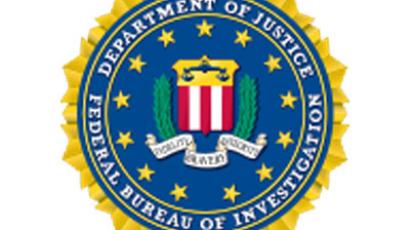FBI admits to destroying their file on journalist Hunter S. Thompson

In response to a Freedom of Information Act (FOIA) request for the file on legendary outlaw journalist Hunter S. Thompson, the Federal Bureau of Investigation (FBI) says it destroyed some of the documents in the 1990s.
Argus Leader Media reporter Cody Winchester received 58-pages of documents from the National Archives after the FBI told him that “records responsive to your FOIA request were destroyed on Feb. 1, 1994 and Sept. 1, 1998.” Winchester suspects he could be the first to have acquired what remains of the all pages of a federal investigation into the long-time Rolling Stone correspondent and originator of “gonzo journalism.”The reason behind the file destruction is unknown, but an examination of the document by South Dakota State University journalism professor Matt Cecil provides insight what he believes to be the FBI’s motives for following Thompson. “It is apparent from this file that the FBI became interested in Thompson as a result of his Hell’s Angels article in The Nation (and book that followed) along with his subscription to The People’s World,” Cecil says, referring to the weekly paper tied to the US Communist Party.It’s no secret that Thompson spent time in prison for robbery, failed to finish school and read communist publications. After becoming a journalist, he published an article titled, “The Motorcycle Gangs,” which detailed the life of the outlaws who called themselves the Hell’s Angels. His full-length account of his time with the biker group, "Hell's Angels: The Strange and Terrible Saga of the Outlaw Motorcycle Gangs," was later compiled and published as Thompson’s first nonfiction novel years before “Fear and Loathing: On the Campaign Trail '72” and “Fear and Loathing in Las Vegas: A Savage Journey to the Heart of the American Dream” propelled his career. Using the access the FBI had to the subscription list, agents collected information about the journalist’s whereabouts, citations in the media and government records. The FBI also questioned those who knew Thompson about his affairs: in one instance, a liquor store clerk was even interrogated about the journalist’s visits to the store.Thompson was an avid opponent of former president Richard Nixon, and the FBI may have been sent to dig up dirt on the journalist as a result of Nixon’s fear of impeachment, a write-up by Raw Story suggests.“Some of my best friends have hated Nixon all their lives,” Thompson wrote in Rolling Stone for an article published in 1994. “My mother hates Nixon, my son hates Nixon, I hate Nixon, and this hatred has brought us together.”What Winchester has received of Thompson’s file does in fact include documents critical of Nixon, including the “Aspen Wallposter” art series, presenting an image of the former president with vampire fangs and a Nazi swastika. Elsewhere, the FOIA request has returned proof that the FBI investigated Thompson during his unsuccessful run on the “Freak Party” ticket to be the sheriff of Aspen, Colorado. Their investigation also includes information about mail sent to Thompson’s Woody Creek, CO home, as well as the occasional quip from the author, including one instance where he vowed to “disarm the sheriff and his deputies” to keep them from causing riots. While it remains unclear why the FBI had such a deep interest in the former journalist, the files put together by agents indicates the organization was suspicious of the outlaw, who created a style of experimental journalism titled “Gonzo.”“The intrusiveness of FBI domestic security investigations is on display here,” Cecil said. “An agent just barged into Woody Creek, Colorado and started asking questions. Obviously, the FBI didn’t care much what conclusions people drew from that. Thompson probably didn’t either. Imagine, however, that you were the subject of a 1960s domestic security investigation and agents came into Sioux Falls and started asking questions about you. What inference would people make?”Cecil writes to Winchester that he thinks the FBI responded with “a very brief file considering the subject” and suggests additional material will be made public later.Thompson died from a self-inflicted gunshot wounded to the head at his Woody Creek home in 2005.














